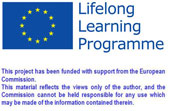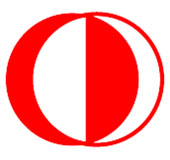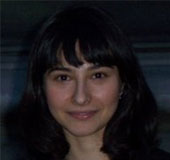
Webmaster: Pinzani.it
You are in: Homepage > Members > Project Partners > Partner's Form
| Name of the organisation: | Middle East Technical University |  |
| Address: | ODTÜ Üniversiteler Mah. Dumlupınar Blv. No:1 06800 Çankaya Ankara/TÜRKİYE |
|
| Tel: | 0090 312 210 30 77 | |
| Fax: | 0090 312 210 79 64 | |
| Web site: | http://www.metu.edu.tr/ http://www.econ.metu.edu.tr/index.php/component/comprofiler/userprofile/akdere |
| Name of the contact person: | Cinla Akdere |  |
| Function: | Lecturer | |
| Address: | Department of Economics A Building Office A-202 ODTÜ Üniversiteler Mah.Dumlupınar Blv.No:1 06800 Çankaya Ankara/TÜRKİYE |
|
| Tel: | 0090 312 210 30 77 | |
| Fax: | 0090 312 210 7964 | |
| E-mail: | [email protected] [email protected] |
| Type of organisation: |
|
| Fields of action: |
|
| DESCRIPTION OF THE ORGANISATION |
Middle East Technical University (METU), founded in 1956, is an international research university, which seeks excellence in serving the country, region and the world. The main campus of METU is located in Ankara, while the two other campuses are as follows: Institute of Marine Sciences Campus, Mersin; and Northern Cyprus Campus, Kalkanlı, Güzelyurt, Northern Cyprus. The language of instruction at all METU campuses is English. METU School of Foreign Languages takes the initiative to teach English to students at Preparatory School. There are a total of 40 undergraduate programs in the five faculties of METU, namely Architecture, Arts and Sciences, Economic and Administrative Sciences , Education, and Engineering. There are 159 graduate programs available in the Graduate Schools of Natural Sciences, Social Sciences, Informatics, Applied Mathematics and Marine Sciences.With these advantages on hand, METU ranks 279 in the top World University Rankings in Times Higher Education 2011-2012.
Owing to the quality of academic education that emphasizes merit and excellence in scientific, cultural and intellectual studies as well as owing to the accomplished and qualified METU graduates, the University has become one of the distinguished and respectable institutions of Turkey. Today, the University is proud to employ about 750 faculty (professors, associates professors etc.), 400 academic instructors and 1,400 research assistants. It is a great pleasure to offer education to over 25,000 students. The total number of the alumni now is above 95,000. The METU Northern Cyprus Campus (NCC) is another important attribute of METU, because it is the first campus to be established outside Turkey by a Turkish university. Established in 2005, METU NCC enjoys the full academic and administrative support of METU. It offers internationally accepted degree programs. There are 13 undergraduate programs and 2 graduate programs. Another important attribute of METU is its Technopolis, which is the first and biggest science and technology park in Turkey. METUTECH hosts over 250 High-Tech companies, employing more than 3300 R&D personnel. METUTECH aims at enhancing Turkey’s R&D potential through university-industry collaboration. METUTECH’s perspective relies on the peripheral eco-innovation model that is composed of several units, each feeding the science park the supplementary influx needed. These are the Incubation Center (including pre-incubation programs and centers), Technology Transfer Office (METUTECH-TTO), Business Angel Network (METUTECH-BAN), and BSN Anatolia (an International Technology Transfer Program - funded by the European Commission - aiming at internationalization of companies). |
| EXPERIENCE OF THE ORGANIZATION IN PREVIOUS EUROPEAN PROJECTS |
METU is the leading R&D university in Turkey
Since its foundation, METU as an international research university has been the leading university in Turkey in terms of depth and breadth of international research projects and the amount of funds generated from research activities. Research activities carried out by its five faculties, five graduate schools and 23 research centers, with around 350 on-going projects sponsored by various international and national agencies, as well as industry, generate around 40 million Euros per year, corresponding to more than 30% of the total revenues of METU each year. Middle East Technical University is the premier university in Turkey in terms of the number of EU Framework Programme (FP) projects. In FP 7, METU has taken part in 55 projects with a total budget of 180 million Euros and a METU budget of 7 million Euros. A wide spectrum of international COST, EUREKA, MEDA, NATO, NSF, UN, World Bank, Jean Monnet projects have also been carried out by METU researchers. METU, amongst all Turkish universities, had the greatest share in national research projects funded by The Scientific and Technological Research Council of Turkey (TÜBİTAK) in the last five years. As part of its research and development vision, METU gives priority to graduate education and consequently, graduates around 200 Ph.D. candidates every year. Research Projects: (As of October 2011)
|
|||||||||||||||||||||||||||
| EXPERIENCE AND EXPERTISE OF THE ORGANIZATION IN THE PROJECT’S SUBJECT AREA |
Some Selected EU-Funded Projects METU has either participated in or has coordinated:
FP7 PROJECTS Acronym (Department of Researcher): Subject
FP6 PROJECTS Acronym (Department of Researcher): Subject
OTHER EU-FUNDED PROJECTS Acronym (Department of Researcher): Subject (Funding Programme)
|
| CONTRIBUTIONS THAT CAN BE PROVIDED TO THE PROJECT |
Turkish is a language spoken as a native language by over 83 million people worldwide, making it the most commonly spoken of the Turkic languages. Its speakers are located predominantly in Turkey and Northern Cyprus with smaller groups in Iraq, Greece, Bulgaria, the Republic of Macedonia, Kosovo, Albania and other parts of Eastern Europe. Turkish is also spoken by several million people of immigrant origin in Western Europe, particularly in Germany.
METU will be in charge of proposing informations and services in the area of the economic texts of the 18th to the 20th century that have been translated into Turkish. Placing these Turkish economic texts in the digital platform that EE-T project will create will reinforce multicultural character of EE-T project. |
| REASONS OF INVOLVEMENT IN THE PROJECT | Turkey's application to accede to the European Union was made on 14 April 1987. Turkey has been an associate member of the European Union (EU) and its predecessors since 1963. After the ten founding members, Turkey was one of the first countries to become a member of the Council of Europe in 1949, and was also a founding member of the Organisation for Economic Co-operation and Development (OECD) in 1961 and the Organization for Security and Co-operation in Europe (OSCE) in 1973. To accede to the EU, Turkey must first successfully complete negotiations with the European Commission on each of the 35 chapters of the acquis communautaire, the total body of EU law. Chapter number 25 is related to the development of science and research in Turkey. In this respect, Turkish government and turkish universities are willing to participate to the development of science in Europe and in Turkey. Being a part of an European project is one of the main aim of the duties of chapter 25. Involving Turkey to many European Project, METU has played a key role in this processus. Being a part of EE-T Project reinforce the METU’s contribution to the integration of Turkey to Europe. |
| CONTACT PERSON’S EXPERIENCE AND EXPERTISE |
Cinla Akdere, PhD is lecturer in METU Departments of Economics since September 2010.
She graduated in Economics from the Political Sciences Faculty of Ankara University in 2001. She got her M.S. and PhD degree in economics from University Paris I Panthéon- Sorbonne. Cinla Akdere’s research interests focus on particular areas in economics, history and science. She has been involved, as a PhD student, in an analysis of the ideas of British economist, John Stuart Mill. Especially the author’s contribution on the philosophy of science is examined. For her PhD thesis, she hasn’t only worked on the original writings of Mill in his native language but also, on the French and the Turkish translations of it. She developed a sensibility for the subject of the translation of economic works, especially on Mill’s work. The main texts on the methodological issues of British author that could be great use by economists haven’t accessible neither in France nor in Turkey. In the future, she plans to contribute to the translation of the works of Mill into the Turkish and French language playing a role of editor. EE-T project will be her first work on the subject of the translation of economic text. Firstly, this experience will help her to understand the job of an editor. Secondly, she plans to create a sensibility on the subject of translation of economist text among Turkish community of economists and editors. |


NEWS
The international conference entitled Translations of Economic Texts into and from European Languages, organized in the framework of the EE-T project, was held at the University of Pisa (Italy) on 11 to 13 September. The aim of the conference was to present the results of researches carried out throughout Europe on the international circulation of economic ideas through translations and adaptations of economic texts. The three days event was attended by around 100 participants representing: lecturers, researchers, students in the field of history of economic thought. More information is available in the Events section